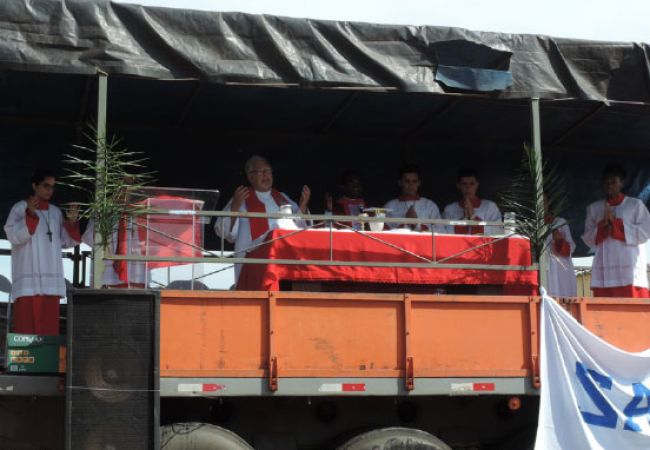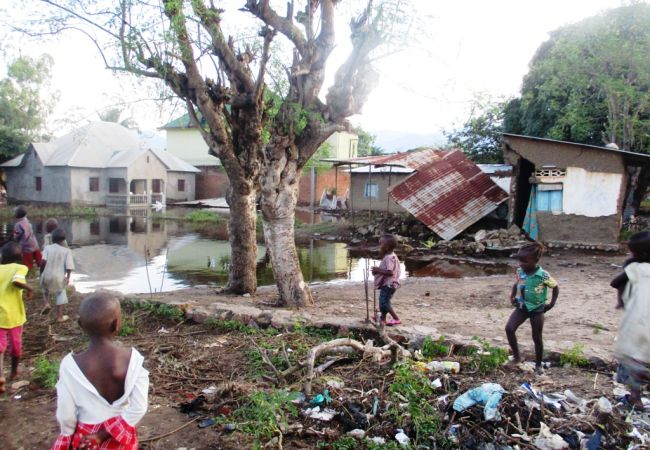Guardare lontano: verso dove? Da dove?
La lungimiranza di Padre Luigi.
Ho conosciuto Luigi Menegazzo circa due anni fa. Ero una cattolica come tanti: famiglia, amici, lavoro, o meglio non lavoro, ma attività frenetica volta a rendere concreti criteri educativi ispirati a giustizia ed efficienza nel mondo della formazione: aspirazione nobile, ma paragonabile alla fatica di Sisifo.
Di Luigi Menegazzo mi colpirono la capacità di guardare lontano e la semplicità con cui spiegava ciò che vedeva.
Mi disse più o meno questo: “Signora, mi hanno parlato di lei. Qui ci sono moltissime cose da fare, se volesse darci una mano...”
Nel frattempo visitavamo l’Archivio Saveriano di Roma, accompagnati dal nuovo incaricato.
Non ero mai stata in un archivio ecclesiastico. Pensavo agli archivi in generale come a spazi polverosi che custodiscono la vera storia, nascosta ai più, delle istituzioni.
Lì stavo passando tra armadi zeppi di libri, documenti, faldoni contrassegnati da sfilze di numeri; molti non avevano neanche un numero; erano lì in attesa che qualcuno si decidesse a guardarci dentro.
“Abbiamo un Padre Archivista nuovo, – aveva continuato Luigi Menegazzo – ed è tutto da rinnovare; io non so come: ci sarebbe lavoro per cinquant’anni! Però è importante riuscire a farlo. Credo che qui dentro ci sia la nostra storia, la storia della Famiglia Saveriana, e noi abbiamo bisogno di cultura. Possiamo costruire cultura solamente conoscendo e facendo conoscere la nostra storia. Siamo gente semplice, per la maggior parte anziani poco esperti di internet e informatica. Tutto quello che voi giovani riuscirete a fare, senza dimenticare questa grande storia, lo farete per costruire il futuro. Abbiamo bisogno delle nostre radici per progettare il futuro e dobbiamo farlo con lungimiranza.”
Erano parole chiare, dette con affetto, anche se mi stupiva percepire quel tono in una persona che vedevo per la prima volta. Pensai che risuonasse nelle sue parole l’affetto che doveva sentire per i Saveriani.
Oggi penso che probabilmente parlava così con tutti, anche con il primo venuto. E in effetti: perché mi stupivo allora? Non era forse un missionario? Non era forse ovvio che si comportasse amorevolmente verso ogni persona?
Cominciai ad andare dai Saveriani quando avevo tempo. Mi sentivo come se mio fratello mi avesse chiesto di mettere insieme la storia di famiglia: libri, scritti, fotografie, diapositive, film, ricordi.
Ogni tanto mi fermavo a leggere parole forti, infuocate, altre volte parole particolarmente miti, scritte da uomini che avevano creduto di dover contribuire a tramandare un messaggio di libertà, di uguaglianza, di fratellanza universale. Il metodo? L’azione congruente con l’idea, che si ferma solo quando rischia di ferire. L’azione: non la lotta.
Oggi, dopo due anni di questo esercizio, che non è un lavoro, non è un aiuto per mio fratello e non è neanche un dovere, capisco meglio che cos’è. È semplicemente l’esplicitarsi di un bisogno: partecipare alla costruzione di un futuro che scaturisca dalle radici della mia cultura. Che è cristiana. Questo è tutto, ed è molto semplice. Non altrettanto semplice è come farlo.
Penso ad un articolo letto qualche giorno fa sulla stampa quotidiana in cui, con eleganza, cultura e competenza si diceva che la chiesa ha bisogno di laici “acculturati”, mentre i laici non avrebbero bisogno d’intermediari fra loro e Dio e che si potrebbe fare a meno di tutti i religiosi.
Direi invece che i preti e le suore hanno bisogno senz’altro di tutto, perché sono uomini e donne, ma i laici hanno bisogno anche del papa, dei preti e delle suore.
Se qualcuno non si fosse preso l’incarico di ricordare a tutti e tramandare ostinatamente quello che il Cristo ebbe a dire e a fare nei suoi trentatré anni di vita terrena, caratterizzati dall’azione congruente con l’idea, questo mondo forse sarebbe già distrutto. Ciò che lo affligge, infatti, è l’azione incongruente con le teorie e fin troppo spesso violenta nelle intenzioni e nei fatti, come dimostra l’evolversi della politica nazionale ed internazionale.
Mi stupisce che tutt’oggi esistano uomini capaci di mettere per iscritto il loro voto di obbedienza, castità e povertà e magari anche di osservarlo; mi meraviglia sapere che molti di loro vivono con esigenze personali minime, lavorando talora con efficienza sbalorditiva ; mi suscita un moto di ammirazione prendere coscienza più da vicino del loro impegno, svolto spesso in condizioni disagiate e rischiose in situazioni e luoghi pericolosi.
Da questa prospettiva ringrazio ancora Luigi Menegazzo per le sue parole semplici e il suo stile accogliente, che tanto hanno saputo dirmi. Amava la parola “lungimiranza”, l’adoperava spesso e gli piaceva scriverla. Mi sono accorta che il suo nome è tutto contenuto nelle lettere che la compongono.
M.G.
Looking far ahead: to where? from where?
The foresight of Fr. Luigi Menegazzo.
I first met Fr. Luigi about two years ago. I was a Catholic like many others: family, friends and frenetic work that aimed to embody some concrete educative criteria, inspired by justice and efficiency, in the world of formation: a noble aspiration, but one that is comparable to the efforts of Sisyphus.
I was struck by Luigi Menegazzo’s ability to look far ahead and the simplicity with which he explained what he saw.
He said to me, more or less: “I have heard a lot about you. There is a great amount of work to do here, if you would like to give us a hand.
I had never been in an ecclesiastical archive. I imagined archives in general as dusty places that preserve the real history of institutions, which is hidden from most people.
I found myself moving among cabinets packed with books, ring binders marked with rows of numbers; many did not even have a number; they were waiting for someone to look inside them.
Fr. Luigi told me, “we have a new archivist and everything needs to be renewed; I don’t know how: there is enough work here for fifty years! However it is important that we succeed in doing so. I believe that our history is in here, the history of the Xaverian Family, and we need culture. We can build culture only by knowing our history and by making it known to others. We are simple people, the majority of us are elderly and not very skilled in the use of the internet and computer technology. Everything that you young people will manage to do, without forgetting this great history, will help to build the future. We need our roots in order to plan the future and we must do this with foresight.”
They were clear words, spoken with affection, though I was surprised to perceive that tone in a person that I was meeting for the first time. I thought that his words were conveying the affection he must have felt for the Xaverians.
Today I believe he probably spoke this way with everyone. So why was I surprised? Was he not perhaps a missionary? Was it not perhaps obvious that he would behave kindly towards every person?
I began to go the Xaverians when I had time. I felt as if my brother had asked me to put together the history of the family: books, writings, photographs, slides, films, memories.
Every so often I would pause to read powerful words, other times I would read gentle words, written by men who had believed it was their duty to hand on a message of freedom, equality and universal brotherhood. Their method was. action consistent with an idea, which halts only when it is in danger of wounding another. Action, not conflict.
Today, two years on, it is not a job, or about helping my brother; it is not even a duty, but simply the expression of a need to take part in the construction of a future that grows from the roots of my Christian culture. What is not so simple is how to do it.
My thoughts go to an article I read in the newspaper a few days ago, which said that the Church today needs “cultured” lay people, whilst lay people have no need of intermediaries between them and God and that we could do well without all the religious.
I believe instead that priests and nuns need everything because they are men and women, but lay people also need the Pope, priests and nuns.
If no one had taken the trouble to hand on the teachings of Christ, which were characterized by action consistent with an idea, this world perhaps would have already been destroyed. Indeed, our world is afflicted by action that is inconsistent with theories and all too often violent in intentions and acts, as is clearly evident in national and international politics.
I am surprised that today there are still men who are capable of writing down and observing their vow of obedience, chastity and poverty; I am amazed that many of them live with the bare minimum, working at times with astonishing efficiency; I admire their commitment, which is often carried out in difficult and risky conditions, in dangerous situations and places.
I would like to thank Luigi Menegazzo once again for his simple words and welcoming style, which meant a great deal to me.
M.G.
Link &
Download
Access here with your username and password to view and download the reserved files.





